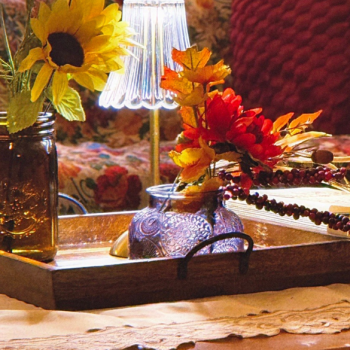 A survey by the British social networking site “Friends United” concludes that more people were happy at the age of 33 than at any other time. Evidently 7 out of 10 respondents “over the age of 40” selected age 33 as the time when they were the happiest. I was unable to find anything that outlined the methodology of this study. Were respondents given a list of every age between birth and death and 7 out of 10 selected 33 at random? Or were they given a selection of ages and 33 was the one that spanned, say, from 30-35? Without that information the study is useless astrologically. But naturally, I’m going to try to make it relevant anyway. The Saturn Return transit event happens when we are 28-30 years old, and then again at 56-59 or so. Saturn, being the planet of discipline and responsibility, creates situations in our lives that force us to grow up during the Saturn Return. For some this means the most difficult time in their lives – for others, the ones who use this time to focus on career achievement and family live, it can be the most successful. Jupiter Returns occur more frequently, about every 12 years. Jupiter is the planet of expansion, confidence and optimism, and the Jupiter returns correlate to a general feeling of happiness and faith in the way that life is turning out. The first Jupiter Return after the Saturn Return occurs at age 34-36 and is a welcome respite after the pressure of the Saturn Return. We don’t usually notice when everything in our life is flowing under a Jupiter transit – I always say that no one comments when the temperature in the room is “just right.” When doors are opening and opportunities are coming our way – we feel good about life, but we don’t generally observe that fact. We typically only notice when we’re uncomfortable or challenged. But after a 2-3 year cycle like the Saturn Return, when we go through a period of expansion and good fortune under Jupiter it becomes much more apparent. I hope that this group will publish their survey so that this can be analyzed in more detail. Respondents were said to be only “over 40.” It is sad to me that people look back at their youth as being the time when they were the happiest rather than finding the gifts that are given at every age. I’m in my second Saturn Return now, so you can see how old I am at this point, and I can truthfully say that I am happier than I have ever been. As we age and mature and hopefully work on unraveling the bounds of our personality conflicts and issues we become more comfortable in our own skin – happier with who we are and the life that we’ve made for ourselves. Another UK study quoted in Psychology Today found that it was people over 60 who were the happiest. Here again we have the Jupiter return following the second Saturn Return and resolving many of the issues that we face as we enter the Third Age of life. This study found, not surprisingly, that the happiness quotient is at its lowest in the mid-40s, the time of the “midlife crisis transits.” The 40s are an intense time of challenge and pressure to evolve, and it can be the worst of times as well as the best of times as we let go of our past selves. If in our 50s and 60s we are still longing for our 30s, something isn’t right and it’s quite time to do something about it! I will leave you with this excerpt from the Psychology Today article:
A survey by the British social networking site “Friends United” concludes that more people were happy at the age of 33 than at any other time. Evidently 7 out of 10 respondents “over the age of 40” selected age 33 as the time when they were the happiest. I was unable to find anything that outlined the methodology of this study. Were respondents given a list of every age between birth and death and 7 out of 10 selected 33 at random? Or were they given a selection of ages and 33 was the one that spanned, say, from 30-35? Without that information the study is useless astrologically. But naturally, I’m going to try to make it relevant anyway. The Saturn Return transit event happens when we are 28-30 years old, and then again at 56-59 or so. Saturn, being the planet of discipline and responsibility, creates situations in our lives that force us to grow up during the Saturn Return. For some this means the most difficult time in their lives – for others, the ones who use this time to focus on career achievement and family live, it can be the most successful. Jupiter Returns occur more frequently, about every 12 years. Jupiter is the planet of expansion, confidence and optimism, and the Jupiter returns correlate to a general feeling of happiness and faith in the way that life is turning out. The first Jupiter Return after the Saturn Return occurs at age 34-36 and is a welcome respite after the pressure of the Saturn Return. We don’t usually notice when everything in our life is flowing under a Jupiter transit – I always say that no one comments when the temperature in the room is “just right.” When doors are opening and opportunities are coming our way – we feel good about life, but we don’t generally observe that fact. We typically only notice when we’re uncomfortable or challenged. But after a 2-3 year cycle like the Saturn Return, when we go through a period of expansion and good fortune under Jupiter it becomes much more apparent. I hope that this group will publish their survey so that this can be analyzed in more detail. Respondents were said to be only “over 40.” It is sad to me that people look back at their youth as being the time when they were the happiest rather than finding the gifts that are given at every age. I’m in my second Saturn Return now, so you can see how old I am at this point, and I can truthfully say that I am happier than I have ever been. As we age and mature and hopefully work on unraveling the bounds of our personality conflicts and issues we become more comfortable in our own skin – happier with who we are and the life that we’ve made for ourselves. Another UK study quoted in Psychology Today found that it was people over 60 who were the happiest. Here again we have the Jupiter return following the second Saturn Return and resolving many of the issues that we face as we enter the Third Age of life. This study found, not surprisingly, that the happiness quotient is at its lowest in the mid-40s, the time of the “midlife crisis transits.” The 40s are an intense time of challenge and pressure to evolve, and it can be the worst of times as well as the best of times as we let go of our past selves. If in our 50s and 60s we are still longing for our 30s, something isn’t right and it’s quite time to do something about it! I will leave you with this excerpt from the Psychology Today article:
In old age, a large number of the psychological attachments which normally support our sense of identity fall away. One of the major ones is the attachment to hopes and ambitions. At the end of their working lives, knowing that they may not have many years left, old people stop imagining alternative futures for themselves. They stop striving to become something else, and begin to accept themselves and their lives as they are. Rather than living for the future, they become more present-centred. In addition, they’re likely to lose their attachment to their appearance, to become free of the pressure to ‘look good’ and to stop using their looks as a way of seeking affirmation. They’re also forced to give up their attachment to our careers, along with the status and identity they gave. And now that their children have left home, they’re forced to give up their role as parent-carers too. Of course, these losses can be painful, at least initially. And we’ve all met old people who never recover from them. They become bitter and cynical, wishing they were young still young and attractive, that they still had their jobs to make them feel valued and important, or that their lives had turned out differently. But for many others, this process of letting go brings a new authenticity. It brings them into contact with their ‘core selves’, the essence which was obscured by all of these attachments. Now that they’re no longer focussed on finding happiness outside themselves, they begin to find it inside. They begin to realise that they don’t actually need external things for their happiness, and find a natural contentment in simply being.
[related_posts limit=”5″ image=”50″]














